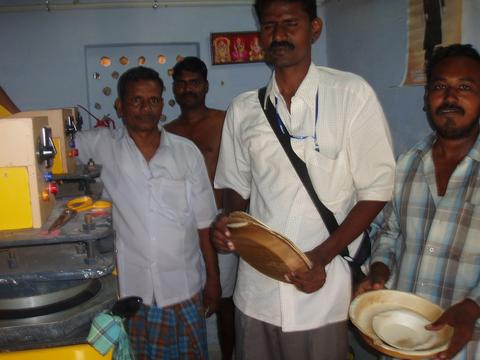It was a rather hot summer day in Salem. I was sitting in front of a manager in the main branch office of the Indian Bank. He was a typical public servant with a non-committed kind of a body language.
I had a spiral bound Areca leaf cup plate manufacturing unit project report in my hand. Velmurugan was sitting next to me. We needed 80,000 rupees as a loan to start the unit.
I explained him the fundamentals of the project, and how we could break-even within a year. I was all in the report. He was hesitating to open it.
“Do you have any collateral?”, he was pointing the question to Velmurugan.
“You see, we don’t want to give any loans to people in Samudram village. They have taken loans before and almost all of them have defaulted. They are not credit-worthy”
Velmurugan is from Samudram, which is where we were hoping to set up the unit.
We walked out of the bank. The meeting lasted ten minutes.
Its almost been a year and half since then. We funded Velmururgan from the prize money from winning the Imagine Cup. The unit is up and running.
I was in the train this morning reading ‘The price of a Dream – The Story of Grameen Bank’. The default rate among the borrowers of Grameen Bank is one percent. It is also true for many other microcredit organizations, through out the world, including rural Tamil Nadu.
P.S. I’m really looking forward to a panel discussion tomorrow with David Bornstein, the author of the book and other Reynolds Fellowship recipients on the topic of microcredit.

